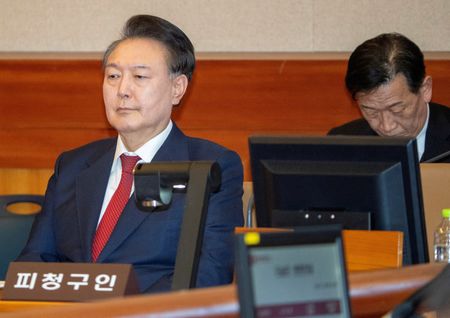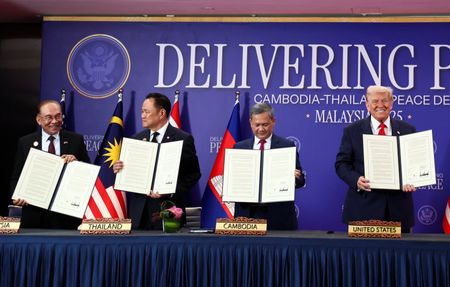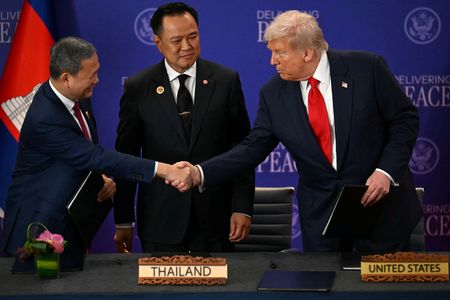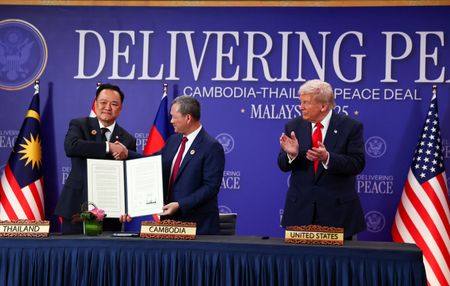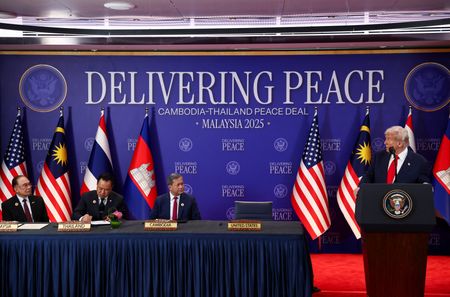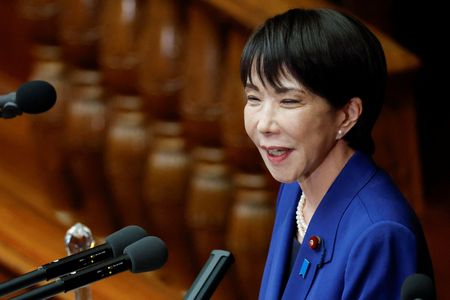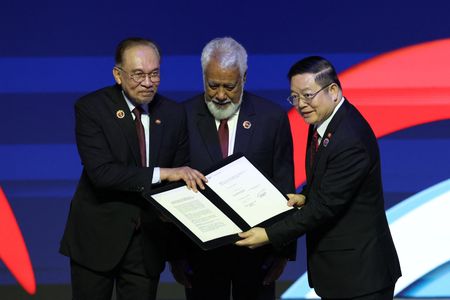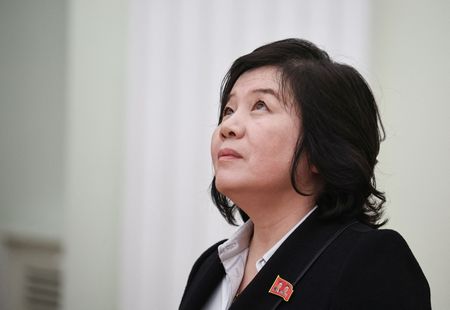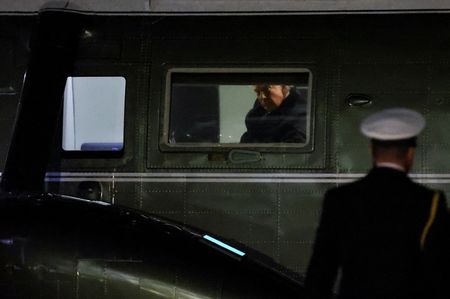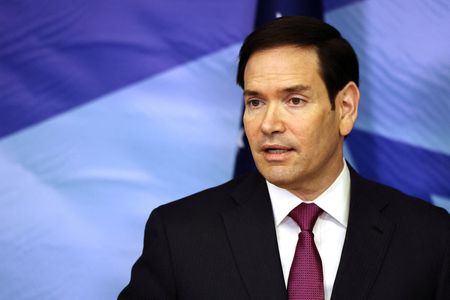By Jack Kim
SEOUL (Reuters) -South Korean parliamentary lawyers seeking President Yoon Suk Yeol’s removal over his short-lived imposition of martial law compared him to a dictator on Tuesday during their final arguments at his impeachment trial.
In his own closing statement to the eight justices on the Constitutional Court reviewing his impeachment, Yoon defended his decisions as lawful and necessary to protect the country.
Yoon faces being removed from office less than three years into his five-year presidency if the court upholds parliament’s impeachment, which accused him of declaring martial law on December 3 with no justifiable constitutional grounds.
Lee Kwang-beom, one of the lawyers for parliament, compared Yoon to previous autocratic South Korean leaders including Park Chung-hee and Chun Doo-hwan.
Yoon wanted to create a world where his every word would be written into the constitution, and sought to privatise the country and reign over the constitution, Lee argued.
“We call this dictatorship,” he said. “The moment he declared martial law, he effectively gave up on his position as the president of our democratic republic.”
Another lawyer said Yoon’s allegations of election fraud were conspiracy theories that have had a “fatal” impact on the credibility of the election system.
In his final remarks, Yoon rejected any comparison of his actions to previous declarations of martial law, saying his decision was intended as an appeal to the people to overcome “anti-state forces”, pro-North Korea sympathizers, and opposition gridlock.
‘NATIONAL CRISIS’
“The purpose of martial law was to inform the public of the national crisis we’re in,” he said in a statement.
Yoon said he never meant to impose full martial rule, instead arguing he intended to warn of the opposition Democratic Party’s abuse of its parliamentary majority.
He also denied having acted out of personal interest, saying it would have been easier to just wait out the rest of his term.
The justices are expected to take days to rule on whether to remove him from office or reinstate him.
Yoon has said martial law, which lasted just six hours before he rescinded the decree, was not a failure but simply ended sooner than he intended.
He said there was no point in debating accusations that he ordered military commanders to break into parliament to remove lawmakers gathering to lift the martial law decree because “nothing actually happened” and nobody was harmed.
Yoon’s arguments drew a rebuke from parliament that the president was incapable of judging what constituted a national emergency that requires such an extreme act and that he might attempt to impose martial law again if reinstated.
His shocking martial law announcement, which banned political and parliamentary activity, triggered a constitutional crisis that also led to the impeachment of the prime minister who became acting president. The finance minister currently leads the country.
Yoon is being held in the Seoul Detention Centre after he was arrested over a separate criminal case that charged him with leading an insurrection. Yoon, a former prosecutor, is the first sitting president to face a criminal trial.
The Constitutional Court has not said when it will deliver its ruling on Yoon but has up to six months from December 14, when it registered the case.
Former President Park Geun-hye was removed from office in 2017 by the Constitutional Court 11 days after the final arguments in her impeachment trial.
If Yoon is removed, a new presidential election must be held within 60 days.
(Reporting by Jack Kim; Additional reporting by Hyonhee Shin, Cynthia Kim and Josh SmithEditing by Ed Davies, Gerry Doyle and Bernadette Baum)

